Kitco's Jon Nadler still can't make up his mind about central bank gold price manipulation
Here's a special case of split identity in the person of Kitco's analyst Jon Nadler and a brief story of gold price manipulation, as reported by GATA:
"How does Kitco senior gold market analyst Jon Nadler get away with it?
Interviewed Thursday morning by TheStreet.com's Alix Steel, Nadler dismissed complaints that central banks and their agents, bullion banks, collude to suppress the price of gold. As he did at the Vancouver resource investment conference in June (http://www.gata.org/node/8717), Nadler insisted, "There's no vested interest on anybody's part to suppress prices here."
You can find Nadler's comment to TheStreet.com here:
But just a few hours later, interviewed about gold on the "Trading Day" program of Business News Network in Canada, Nadler remarked that a gold price of $5,000 would signify "disruptions on a major scale" and a price like that is "something that the central bankers of the world have decided probably not to allow to happen."
You can find Nadler's interview with BNN here:
So if central banks have no interest in suppressing the gold price, why should they decide not to allow gold to reach $5,000? Indeed, why should central banks care about the price of gold at all?
Of course the answer is well documented in history. Indeed, the modern history of gold is almost entirely a matter of central bank price manipulation and suppression, because gold is a currency that competes with central bank currencies and profoundly influences interest rates and the price of government bonds.
Much of the modern history of gold has been outlined well by Bill Buckler, publisher of The Privateer financial letter, particularly in regard to the London Gold Pool of the 1960s and the gold dishoarding by the International Monetary Fund and the U.S. Treasury Department in the 1970s, two acknowledged mechanisms of price suppression. You can find The Privateer's outline here:
And at least four chairmen of the Federal Reserve maintained or expressed interest in suppressing the gold price.
-- William McChesney Martin Jr., the longest-serving Fed chairman, kept in his archive a detailed plan, dated April 1961, for surreptitious government intervention to rig the currency and gold markets to support the U.S. dollar and to conceal, obscure, or falsify U.S. government records and reports so that the rigging might not be discovered. This document remains on the Internet site of the Federal Reserve Bank of St. Louis. Along with some explanatory commentary it can be located here:
-- In June 1975 Fed Chairman Arthur Burns wrote a seven-page memorandum to President Ford about controlling the gold price through foreign policy and defeating a free market in gold. That memorandum can be found here:
-- In November 2004 former Fed Chairman Paul Volcker published an excerpt from his memoirs in the Nikkei Weekly in Japan in which he regretted that central bank intervention was not undertaken to suppress the price of gold during a currency revaluation in 1973. Volcker wrote: "That day the U.S. announced that the dollar would be devalued by 10 percent. By switching the yen to a floating exchange rate, the Japanese currency appreciated, and a sufficient realignment in exchange rates was realized. Joint intervention in gold sales to prevent a steep rise in the price of gold, however, was not undertaken. That was a mistake." The excerpt from Volcker's memoirs can be found here:
-- And former Fed Chairman Alan Greenspan has acknowledged or remarked favorably about central bank intervention to suppress the gold price a number of times, including during the May 1993 meeting of the Federal Open Market Committee. According to the minutes of the meeting, Greenspan said: "I have one other issue I'd like to throw on the table. I hesitate to do it, but let me tell you some of the issues that are involved here. If we are dealing with psychology, then the thermometers one uses to measure it have an effect. I was raising the question on the side with Governor Mullins of what would happen if the Treasury sold a little gold in this market. There's an interesting question here because if the gold price broke in that context, the thermometer would not be just a measuring tool. It would basically affect the underlying psychology." You can find the May 1993 minutes of the FOMC meeting here:
GATA has compiled so much more evidence of central bank manipulation of the gold market here:
Given the U.S. government's fierce secrecy about gold -- GATA has had to sue the Fed in U.S. District Court for the District of Columbia for access to the Fed's gold records, including gold swap agreements the Fed acknowledges having with foreign banks -- we seldom can be sure of what central banks are doing in the gold market at any particular time. But central bank interest in controlling the gold price -- what Nadler keeps denying -- is the gold market's first and overwhelming fact.Any analysis that denies this is disinformation. And any analyst who denies and acknowledges it on the same day to different news organizations must be very confident that they're not paying attention and not inclined to do any research. Unfortunately Nadler probably has that much right."
CHRIS POWELL, Secretary/Treasurer
Gold Anti-Trust Action Committee Inc.
Labels: GATA, gold, market manipulation















![[Most Recent Quotes from www.kitco.com] [Most Recent Quotes from www.kitco.com]](http://www.kitco.com/images/live/t24_au_en_usoz_6.gif)
![[Most Recent Quotes from www.kitco.com] [Most Recent Quotes from www.kitco.com]](http://www.kitco.com/images/live/au_go_0030_ny.gif)
![[Most Recent Quotes from www.kitco.com] [Most Recent Quotes from www.kitco.com]](http://www.kitco.com/images/live/au_go_0365_ny.gif)
![[Most Recent Quotes from www.kitco.com] [Most Recent Quotes from www.kitco.com]](http://kitconet.com/charts/metals/silver/t24_ag_en_usoz_4.gif)




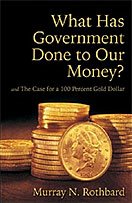

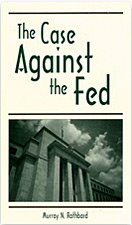

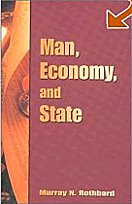

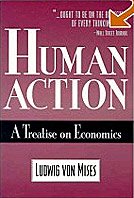
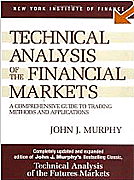
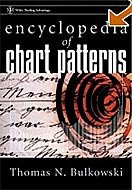




0 ΣΧΟΛΙΑ (COMMENTS):
Post a Comment
<< Home